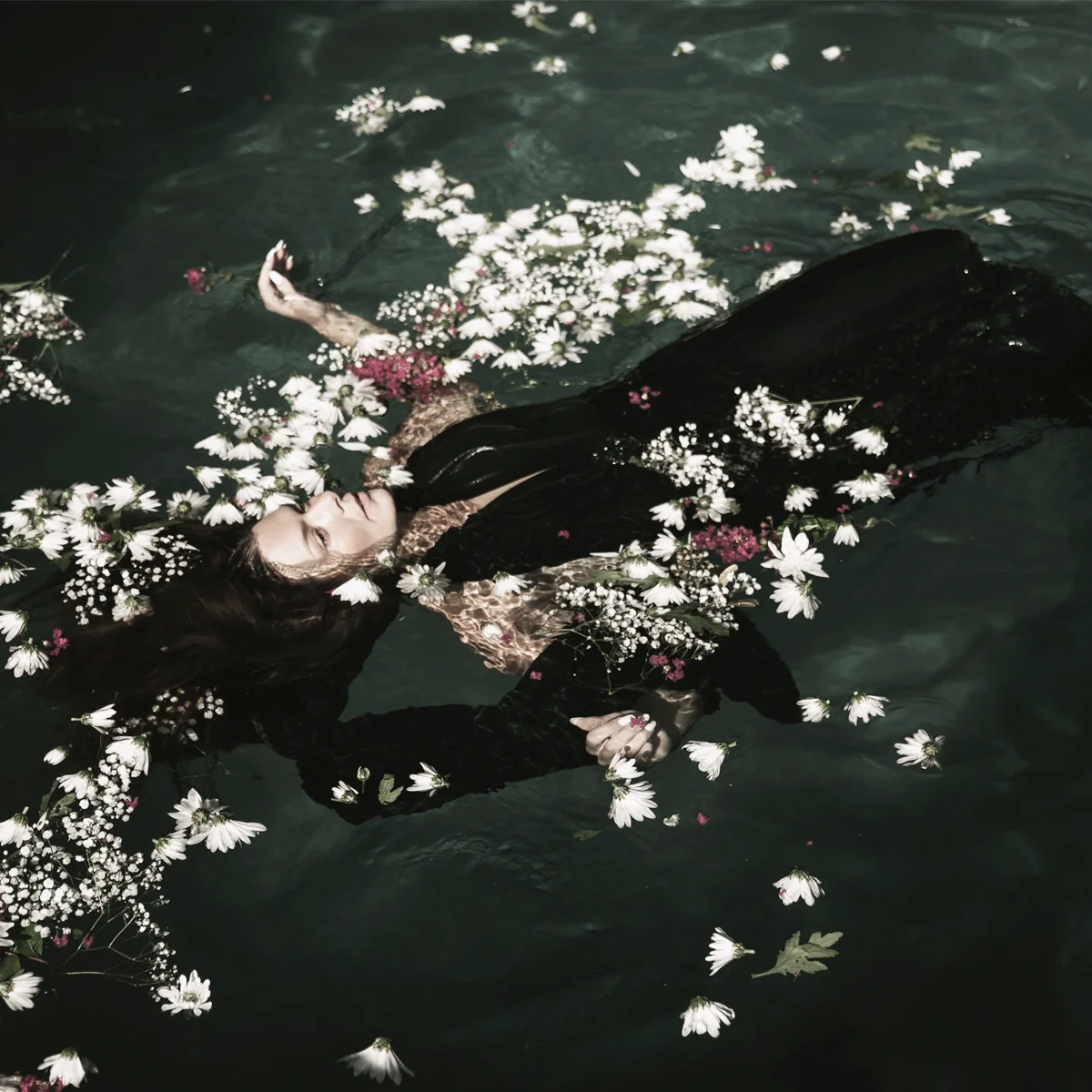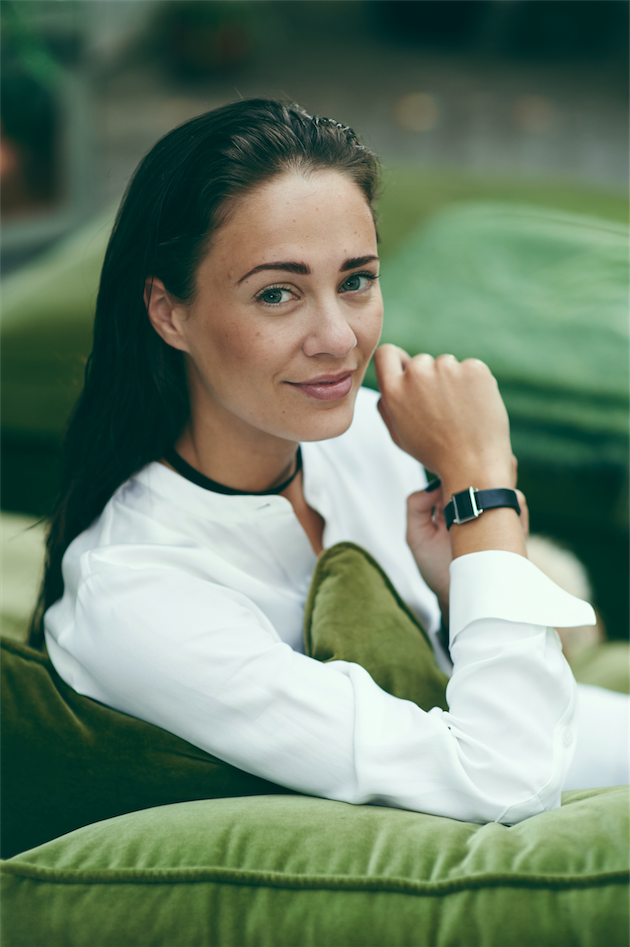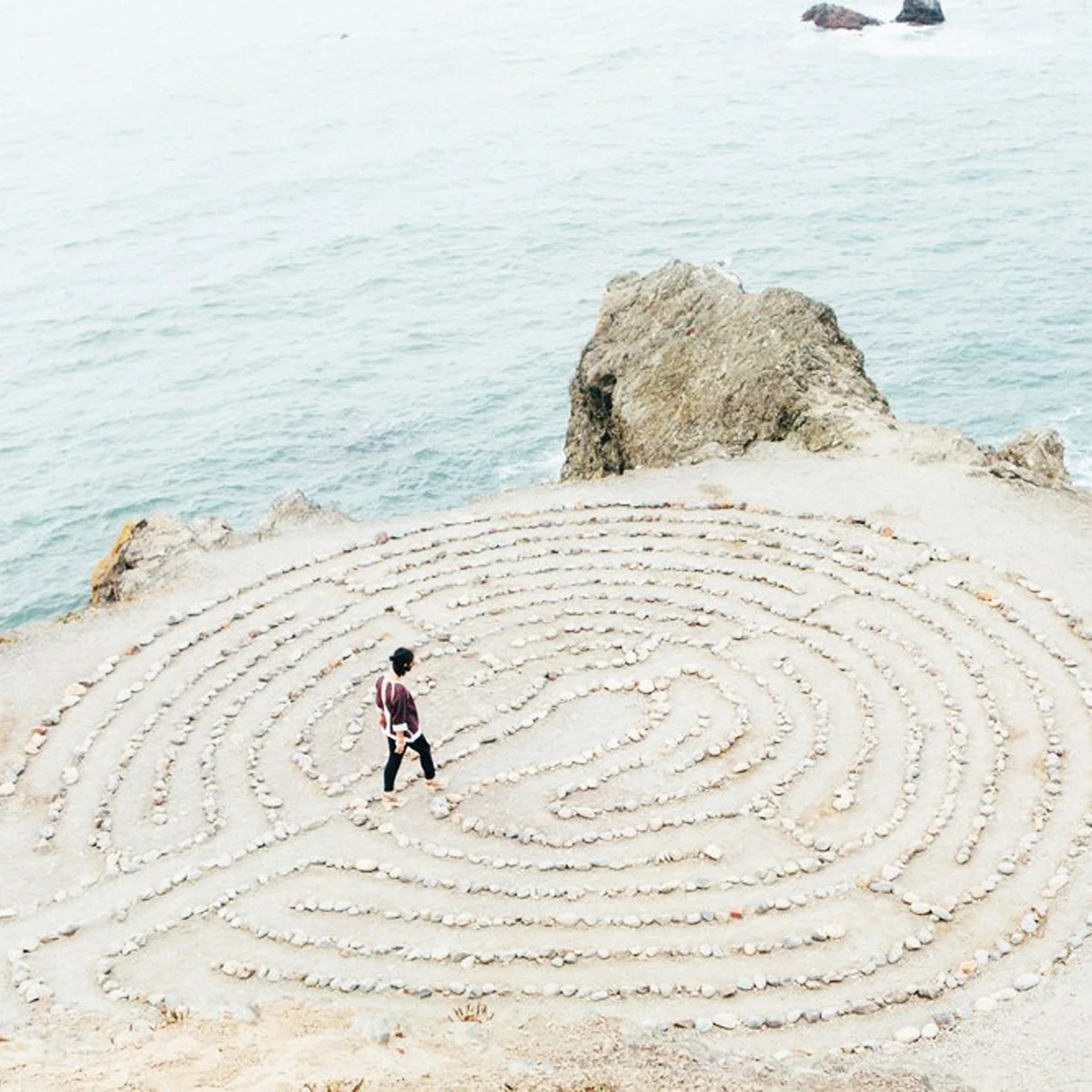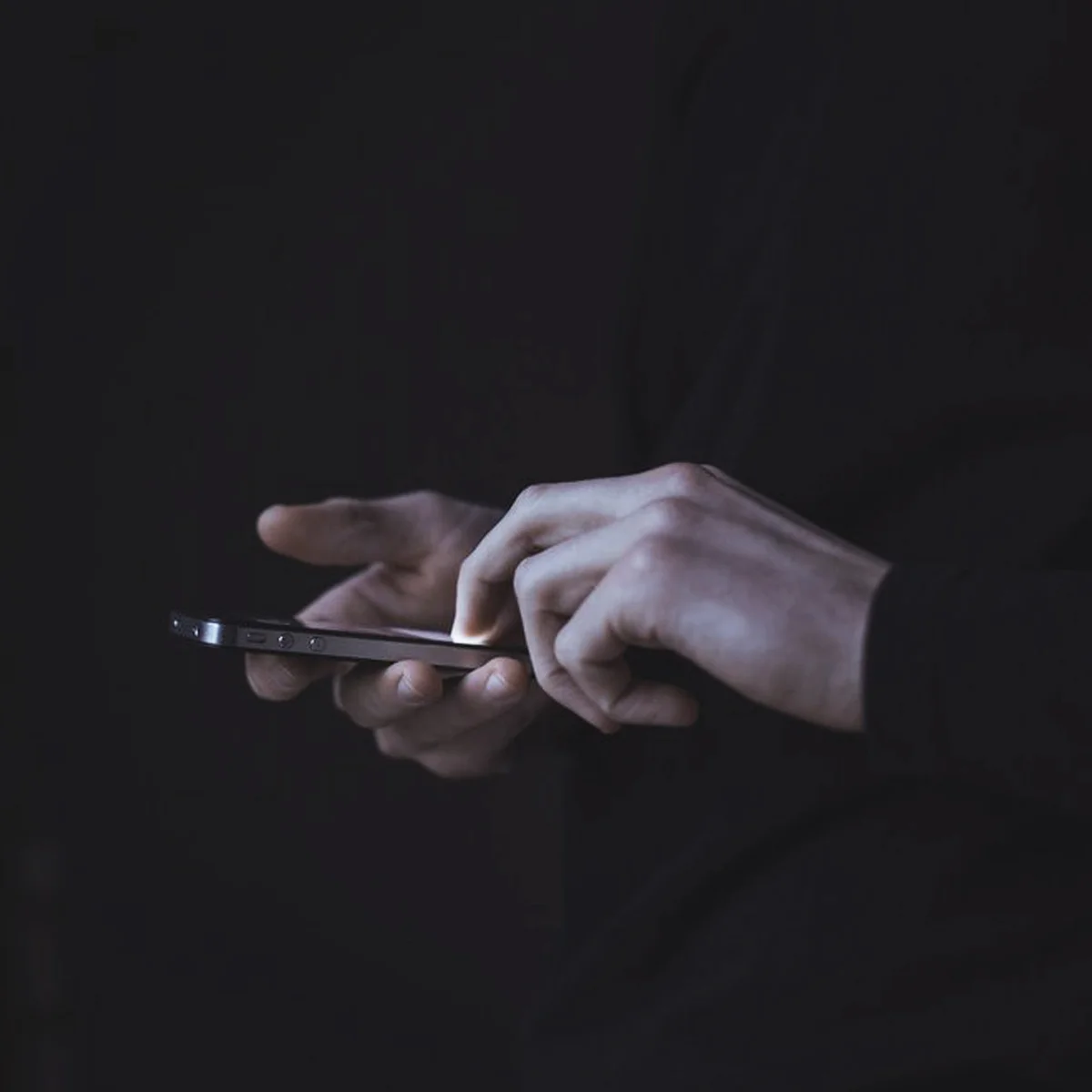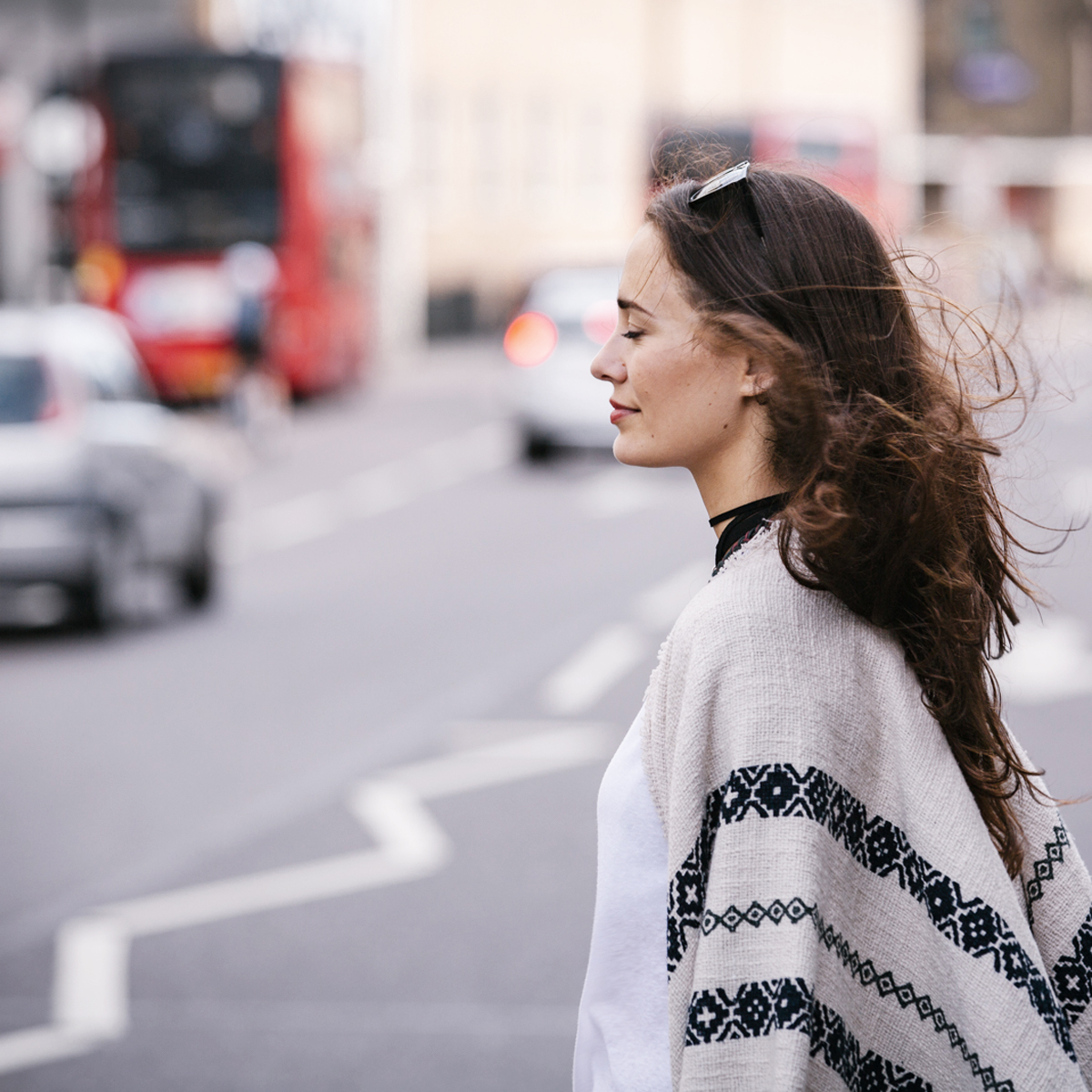DIARY OF A DIGITAL ANTHROPOLOGIST: DESERT DIGITAL DETOX
What is digital anthropology? In an ongoing blog series, VINAYA's in-house anthropologist Sammi demonstrates through exploring different questions and ideas. Here, she explores the exeperience of a real life digital detox.
Last summer, while writing my Master’s dissertation on mindfulness and technology, I took part in VINAYA's three day digital detox retreat in the Agafay Desert in Morocco. In honour of National Unplug Day, which takes place this weekend from March 4th to 5th, I’ve decided to open up my fieldnotes to share my experience of extreme, temporary disconnection.
This can also be seen as a small window into my ethnographic method. Fieldnotes always end up being a strange and confusing combination of theoretical hypotheses, personal judgements, and mindless ramblings. I’ve chosen a couple of excerpts as the most representative of my very personal experience over those three days in the desert.
*Note: names have been changed.
Excerpt 1: Day 2 of Digital Detox
Viktor was of the camp that certain things were socially constructed, and therefore not necessarily complementary to ‘human nature’. I expressed that I was of the camp that the term ‘human nature’ is rather problematic in itself. Who is to say what does and what does not constitute ‘human nature’?
This emerged as a sort of theme throughout a lot of the conversations I had out in the Moroccan desert. There seemed to be a basic and shared understanding that certain truths exist; that humans have a particular nature that we, or our technologies and institutions, can work towards or against. People agreed that the 'self' has an inward essence that we need to work to honour our external interactions, and that the 'body' is separate from the 'spirit' which lives on and beyond its embodied existence.
Most importantly, from my conversations it was clear that people agreed that the 'individual' had emerged as an essential part of producing and maintaining the values of this particular community. Each person seemed to have specific ideas and ideals about themselves as an individual. Also, we were encouraged to get to know each other on the basis of who we were as our true selves, versus our virtual representations or our choice of profession.
"We were encouraged to get to know each other on the basis of who we were as our true selves, versus our virtual representations or our choice of profession."
Around the dinner table that night, we were asked what our expectations were coming into this experience, and what our intentions were when we re-entered our daily lives. Some of these expectations were more general: people felt burnt out from work and needed a break, or had a big decision looming on the horizon and this trip was a chance to gain perspective. Others were more specific. Patrick had just left his high pressure job and needed to figure out what was next. Following the recent loss of a friend, I personally was in need of time and space to grieve.
The intentions going forward, however, followed a similar theme across the board. These generally were to not sweat the little things, to manage one’s time so that it was spent on what was truly important, or to take this opportunity to foster relationships that were truly worthwhile– rather than focusing on the weaker ties that seemed so pervasive online.
Only one person stood out in their answer. Mark stood up and said "I haven’t really had anything in the way of expectations or intentions… I can honestly say everything’s good and overall I’m happy right now." This response garnered a range of reactions – from sincere to thinly veiled sarcastic notes of congratulation born from envy (namely, from myself).
Excerpt 2: Day 3 of Digital Detox
After lunch, I ended up in an in-depth and very emotional conversation about grief with a few other women. Two of them had lost their mothers the year before, and they were discussing how a person lives on once they’re gone. They talked about how seemingly ordinary or mundane occurrences can work as a reminder of their presence. They mentioned how these mundane things could even make it seem as though their loved ones were trying to communicate with them in some way.
We talked about the varied and exhausting experience of grieving, of how it manifests in different ways. For the first time since my friend had passed, I was speaking openly with people who could relate. Their pain in many ways ran much deeper, and I felt strangely comfortable with them. Sitting in the desert in Morocco with three women I had known for 48 hours, we bared our souls and found comfort. In many ways, without pressure or distraction, it seemed like the only thing, and the appropriate thing, to do at the time.
"Sitting in the desert in Morocco with three women I had known for 48 hours, we bared our souls and found comfort."
By the time we sat down for dinner, I felt as if my philosophical and emotional capacity had been well and truly filled. I’d had conversations about love, loss, and everything in between.
When John asked if anyone had a question they would like to take around the table, I decided to take matters into my own hands. I immediately offered my suggestion: "What’s your most embarrassing story?". I elaborated that it didn’t even need to be yours, just the most embarrassing story you know to be true. I was in desperate need of a laugh!
The next couple of hours were filled with inappropriate tales involving bodily fluids, accidents, pranks and all kinds of unfortunate, hilarious, and even slightly tragic circumstances. I felt a very welcomed sense of relief, and this seemed to resonate with the others as well. By the time we finished, a number of people from the other dinner tents had filtered into ours to see what all the raucous was about.
The following day, the group disbanded. Some stayed in Morocco, some moved on to other adventures and some, like myself, headed home. I must admit, when I got my phone back and turned it on I felt instantly overwhelmed. Not to say that I am so wildly popular that I was inundated with messages, but the few that had accumulated seemed unimportant for a while. I didn’t bother to answer most of them for the next few days...




